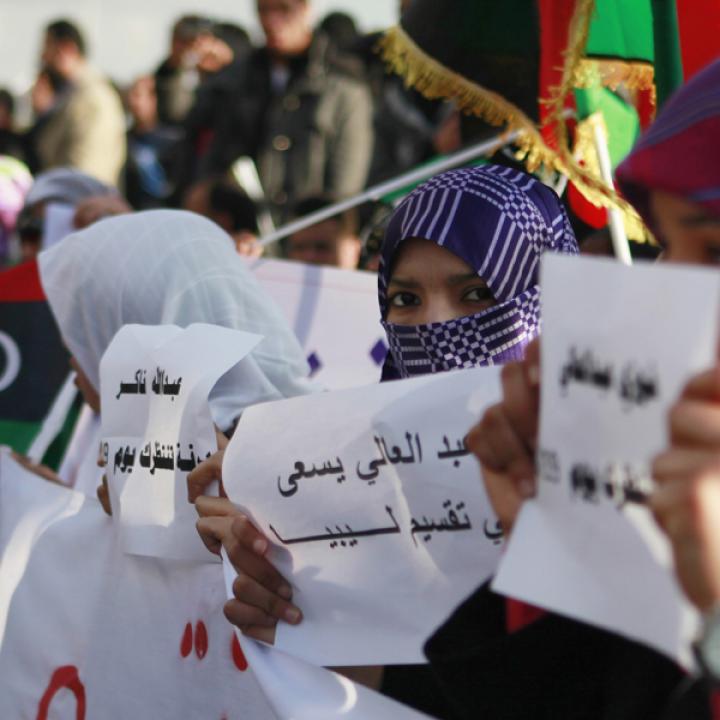

In this essay, eleventh in a series exploring non-Islamist reform actors post-Arab Spring, analyst Mohamed Eljarh explores the prospects for governance in a deeply fragmented, polarized Libya.
After the 2011 fall of longtime Libyan dictator Muammar Qadhafi, signs pointed briefly toward a successful transition away from authoritarianism. The oil-rich country saw cause for optimism in a nascent civil society: a negotiated process aimed at creating stable political institutions and a national election indicating broad support for a political leadership that was neither Islamist nor autocratic. But worrying signs soon emerged, highlighted by the September 2012 attack that killed U.S. ambassador Christopher Stevens. In subsequent years, militias have wrested effective power from civilian leaders, and three separate governments now claim legitimacy over the war-riven country. The World Bank warned in its latest economic outlook report that Libya is near failure.
In this essay, the eleventh in a series exploring non-Islamist reform actors post-Arab Spring, Mohamed Eljarh explores the prospects for governance in a deeply fragmented, polarized Libya. He emphasizes that while a political culture conducive to democracy may be decades away, Libyan activists can lay the groundwork for such a future by promoting the principles of human security, dignity, and social justice today.
THE AUTHOR
Mohamed Eljarh is a nonresident fellow at the Rafik Hariri Center for the Middle East, where he is a political analyst on Libyan issues. His research serves to provide crucial information and insight on Libyan politics and security. Eljarh currently lives in Libya.


